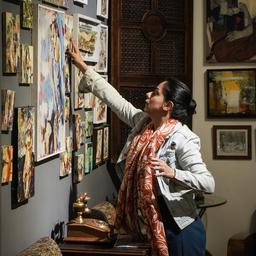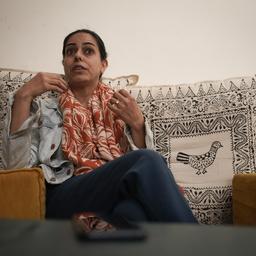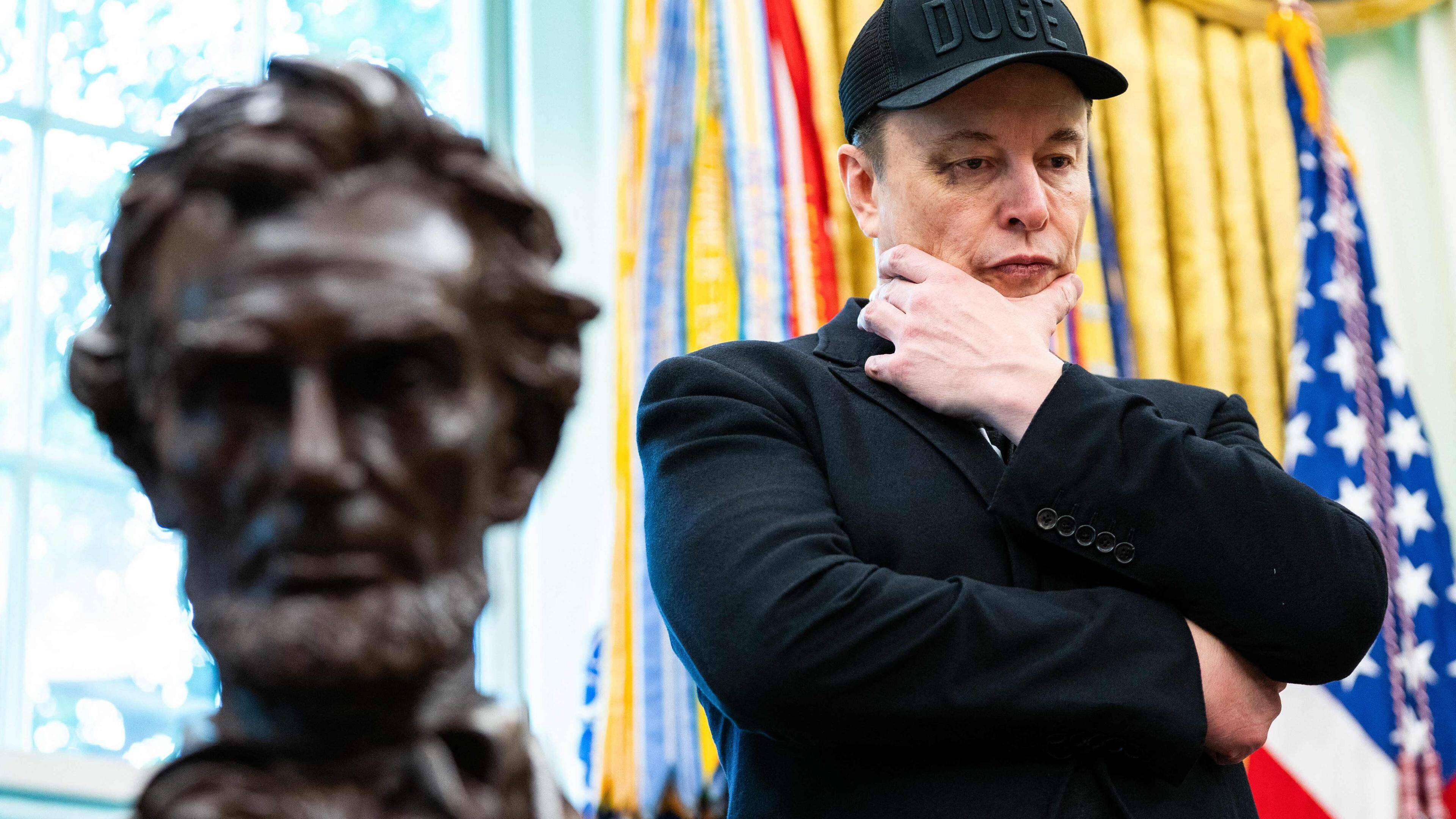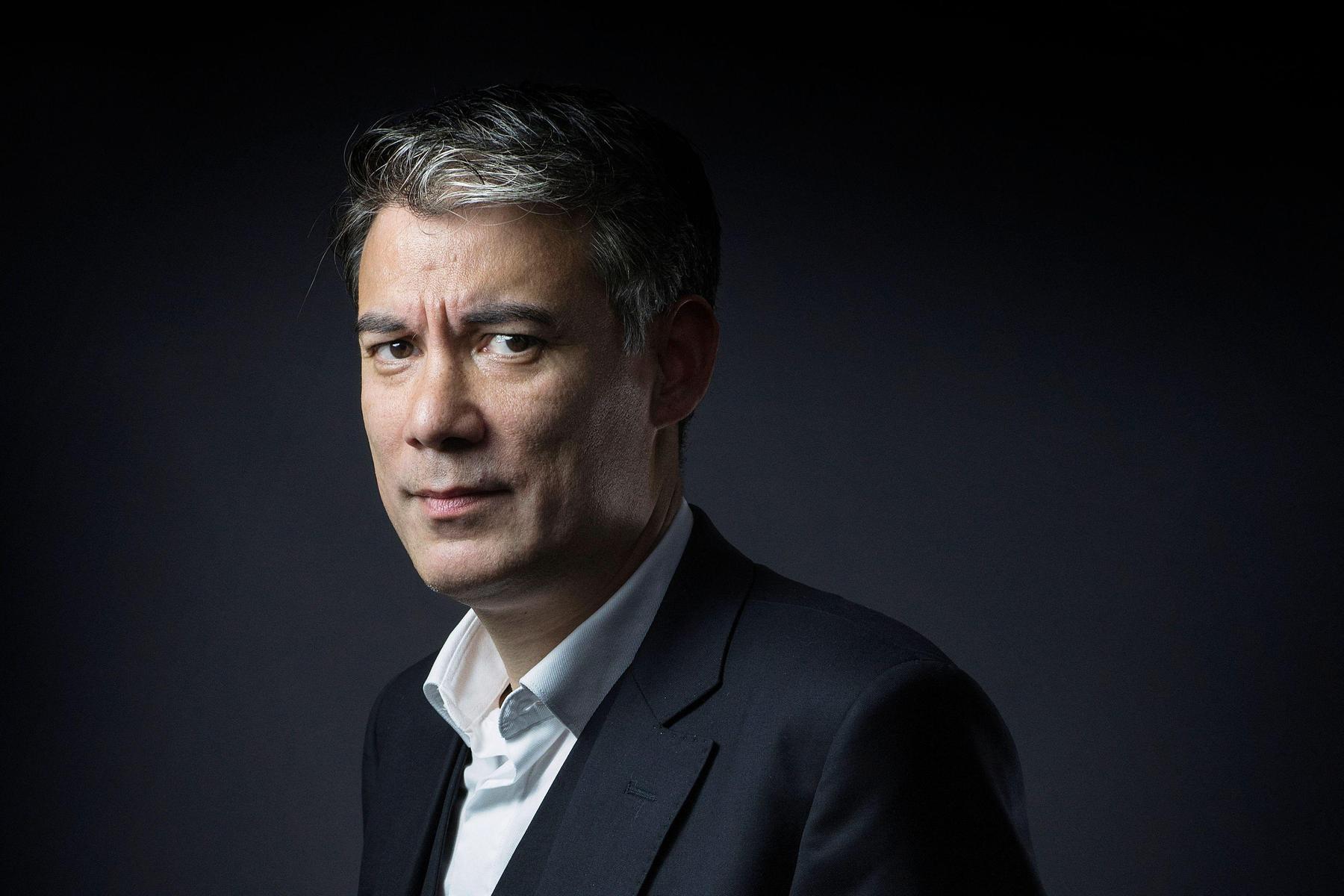Return of prohibited books: Syria’s literary spring

Damascus. « I kept my story for myself for over 53 years, » says Nisar Abasa. « Today I can finally put them into words and publish them. » For decades, the 80-year-old writer kept many of his ideas and thoughts-for fear of landing in one of the notorious torture prisons for his thoughts. « I kept them in my heart. They describe what I and so many Syrians had to go through every day. Now they can finally go to the public. »
The thoughts were throttled in Syria by long-term power holder Bashar al-Assad. Hundreds, even thousands of books were censored by Assad’s government, removed from the market and banished. In December, the Syrian long -term ruler had been overthrown by a rebel alliance after almost 14 years of a brutal civil war with hundreds of thousands of dead. After a more than 50-year rule of the Assad family, the country is now led by a transitional government led by Islamists.
A Syrian bookseller sits next to his bookstore on the sidewalk in Damascus. Photo: Moawia Atrash/dpa
Books hidden in sewage pipes
In particular, those books that of Assad’s authoritarian government in question or are committed to another ideology were considered dangerous, reports the publisher of the publisher Dar al-Fikr, Wahid Taja, in Damascus. Dar al -Fikr can be translated with the house of ideas – a name that contradicted the government’s course.
Syria remains a country between fear and hope
The authorities were often arbitrary and were not agreed on themselves, which should and what should not be allowed on the market. « They had mood swings, » says Taja. A book that was allowed today could be banned tomorrow – depending on the political weather situation. There were regular lists from the Ministry of Information that should be banned. « If they found books that were not allowed during their visits, they were burned, » he says. Critical books hiked into the underground. Some were even hidden in sewage pipes.
Wahid Taja, press representative at DAR al-Fikr, one of the most famous publishers in Damascus, leafers in books in the relative bookshop. Photo: Moawia Atrash/dpa
« I hid a lot of books, protected like a treasure, » says Taja. Always in different places, with friends or in cellars. When Assad had fallen, he « wiped the dust from her sides » and brought it back to light. « It was a day of liberation – also for Syria’s literature, » said the publisher. Today there are no more lists. Dar al-Fikr hesitates with a view to the new Islamist leadership in Damascus with the publication of religious-critical books, even if there was never a concrete announcement.
« You didn’t want education »
« You didn’t allow us to think, » says Adham Adschamja and refers to the Assad government. He has been selling books on the open -air book market under the now so -called Freedom Bridge in Damascus for ten years. « They didn’t want education, » he says. Once they came with bulldozers to destroy all the stands. Trigger words like « Revolution » in the title were reason enough to take the corresponding books from the market. Numerous libraries and bookstores across the country have been converted into simple stationery shops.
The Syrian booksellers Adallah Hamdan (left), who sells religious books, and Adham Ajamja, who sells political books, browse on the open -air book market in Damascus in their range. Photo: Moawia Atrash/dpa
But Adschamja always believed that Assad will one day disappear that education would return. For years he only sold the many forbidden books in secret. Today they are open and free for sale.
Abdallah Hamdan, seller religious literature at the neighboring stand, has had his own experience with supporters of the new Syrian leadership. After the fall of Assad, some of them came to him, had a critical look at books that depicted Christian symbols or inscriptions, and asked him to burn them. « Don’t make the same mistakes as the old regime, » he replied to them. « We all wanted freedom, education and literature, » said Hamdan. He still had to burn the books.
Fear of « rebirth of the old regime »
Other cultural areas of the country are also skeptical about the change in the country with great hope. « What we are experiencing now is copy-and-paste, » says the co-founder of the Zawaya art gallery in a Christian quarter of Damascus, Rola Sleiman. Before that, there was a security state – i.e. a state based on controlling secret services, police and military. Today the transitional government is based on a religious system. « There are no freedom with both, » says Sleiman.
Although she felt relief that Assad and his wife Asma, who had claimed control of culture and cultural heritage, no longer ruled Syria. Nevertheless, she feels afraid of what is coming.
In the flash of light, rebels moved to Damascus under the leadership of the Islamist group Haiat Tahrir al-Scham to overthrow Assad. « When they were just before Damascus, I wrapped all art from our gallery and hidden in my home, » reports Sleiman. Only three weeks after the fall she dared to bring the art objects back.
A supposed member of the new transitional government described her exhibited sculptures when visiting the gallery as « Haram », so sinful. But the sculpture is one of the oldest arts of Syria, emphasizes Sleiman. « I’m afraid because we really don’t need the old regime’s rebirth, » she says.









